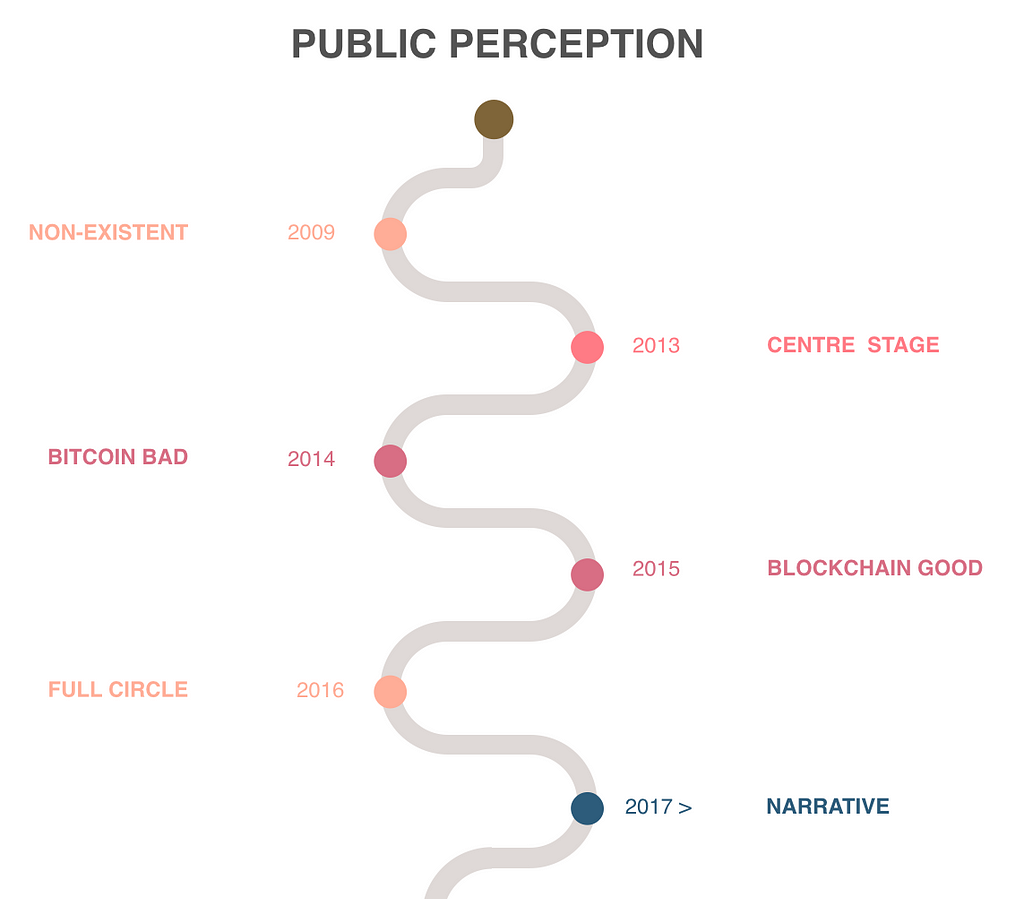
If you grew up in the 90s and early 2000s, you probably still remember downloading MP3 files to build your music collection, and burning up to 10 times as many of these onto audio discs than you could with traditional CD tracks. I didn’t just remind you of MP3s to make you feel old first thing on a Monday morning; I also wanted you to know that the Fraunhofer Institute for Integrated Circuits – the German agency that invented the audio format and licenses some patents for it – has officially terminated its licensing program. This doesn’t mean that MP3s…
Alexis Madrigal is back at The Atlantic, where he’ll be writing about technology, science, and business. His first piece is a reflection on how the Internet has changed in the 10 years he’s been writing about it. In 2007, the Web was triumphant. But then came apps and Facebook and other semi-walled gardens:
Last month I spoke at the Oslo Blockchain Day about the perception of cryptocurrencies and blockchain over time. This article is an iteration of that talk.

In 2009 when the genesis block was mined, no one aside from a select few crypto fanatics knew about bitcoin. It was non-existent in the minds of the average person. At this point the price of Bitcoin was zero Dollar. Soon someone paid 10,000 bitcoins for a pizza and this worthless thing suddenly had economic value. As a side note, this point where non-economic things get economic value is fascinating. It happens in all types of digital economies and it questions how one thinks about value creation. For instance, in game environments inflation and economic incentives automatically emerge whether you plan for it or not — nature of the beast I suppose.
/https%3A%2F%2Fblueprint-api-production.s3.amazonaws.com%2Fuploads%2Fstory%2Fthumbnail%2F45913%2F7fbab347-07b9-4bc9-8131-fe5c0e2545da.jpg)
More than 16 years after founding Wikipedia, the free online encyclopedia, Jimmy Wales is determined to reform another critical source of information: the news.
Analyzing a counter intelligence cyber operation: How Macron just changed cyber security forever

Up until today I could only look up to Russia (whether I agree with them or not) for conducting advanced information operations in cyber. Now, I can look up to Macron and the anonymous security professionals behind him and admire them. Finally, someone uses cyber deception to beat attackers at their own game. I am not alone, and Cymmetria’s ideas have been vindicated yet again.
Discover more from Erkan's Field Diary
Subscribe to get the latest posts sent to your email.